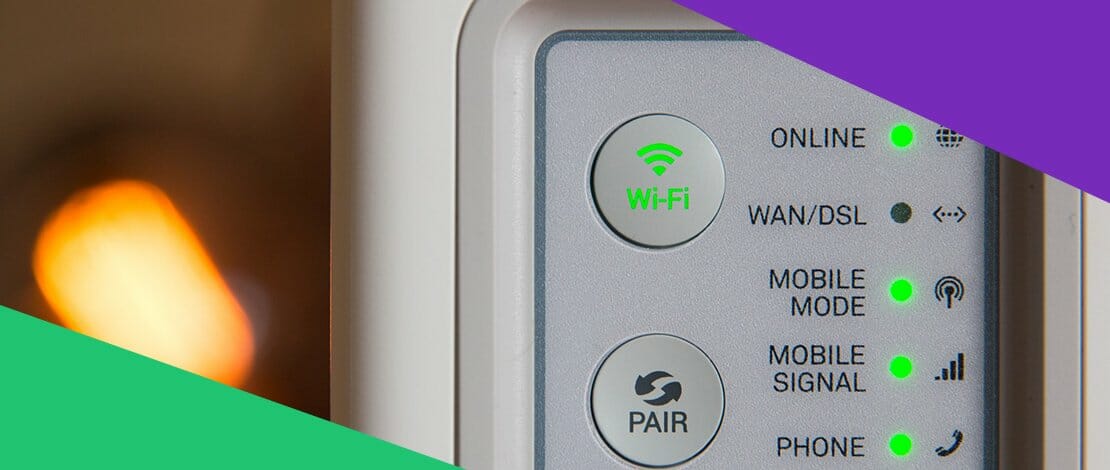Modem Vs Router – Are They the Same?

Whenever we purchase a new device, we are challenged with new terms we need to understand. With networking, it might as well be like trying to learn a dictionary every single time. Most of us have been using the internet since it became commercially available, but few bothered to learn the nuances of the terminology behind it.
Hardware being used when connecting to the internet, like modems, routers and network adapters, confuse almost everybody. On today’s schedule of confusing terms, we have the frequent modem vs router question. Following are explanations which should clear up any issues with the hardware and names behind it.
What is a Modem?
A modem is a device which translates digital information out of a computer into something that can be transmitted through an often simple type of conductive material, whether DSL, cable or fiber. The modem also translates incoming information. It is actually a blend of two words, modulator and demodulator.
It modulates a signal in order to prepare it for transmission, and it demodulates incoming signals, thus translating incoming information. Modems can also work with analog devices such as radios and LEDs. The most common type of modem is used for connecting to the internet.
Modems prepare the signal and encode it so that it can easily be decoded wherever it is sent, as well as decode incoming signals so that your computer or phone can understand it. Modems in networking differ in terms of whether they are preparing the information for a telephone cable, or a coaxial cable, or fiber cables.
What is a Router?
Routers are used to forward information packets between computers and networks. In the most common sense, routers are used to transmit information to and from the internet, but from more than a single device.
Let us say that you have a laptop, mobile phone and desktop computer connected to the same router. You searched for a web page on the mobile phone, opened Amazon on the desktop and turned on Netflix from your laptop. A router makes sure that all the computers get their information, the exact information they requested.
This is on the consumer end of things. In the internet backbones, core routers forward tons of information through high-speed fiber lines to other core routers, which is one of the parts of how the internet works so well and so fast.
With the two definitions out of the way, how does one end up with the router vs modem dilemma?
Gateways – A Two in One Solution
Most internet service providers either give out gateways for free or for a small monthly rent. Gateways are a modem and router all in one combo and they are best used at home, for a simple solution. They take up less space and one outlet less.
Gateways can be powerful enough to suit most consumer needs, but on the other hand, they do not perform the best when used in enterprise applications. Depending on what one needs, the modem router combo vs separate purchase should be an easy decision. Consumers with no specific needs should always go for a gateway but those who need more control and a more modular and powerful solution should purchase a separate modem and router.
WiFi Modem vs Router – Wireless or Wired?
There are such things as wireless modems, albeit they are not strictly wireless. They have to be powered by an adapter going to an outlet, but they do have an integrated wireless router. Wireless routers provide an access point (or more) to any wireless devices which support WiFi. Wireless communication is practical but can have stability issues like jitter, particularly if one is far away from the router, requiring a specialized long range router.
On the other hand, wired routers which support ethernet connections only are great if you want speed and stability but they do require you to have cables to any devices which you want to connect to the internet.
Modem Vs WiFi Router – Need is Key
A modem as a separate purchase can provide your computer with a high speed solution if that is all you care about, as well as extra security. On the other hand, it cannot really handle more than a single device, so that is something to be considered.
A WiFi router can handle multiple wireless devices, but it can have limitations of its own, if that is all that it can do. More likely solutions for consumer needs include gateways, a modem/router combo which can handle everything you throw at it. More expensive gateways can handle 10 gigabit ethernet speeds and 5GHz WiFi.
Modem Vs Router Difference – Summarizing the Problem
In isolation, the two devices do completely different things. A modem stands for modulator/demodulator and it both modulates outgoing signals and demodulates incoming signals. It is most commonly used with computers, helping them connect to the internet. It can also be used with other devices where encoding and decoding signals is necessary.
Routers are used to forward information from more than two different lines. In computer networking, that means forwarding information from different computers to the internet, or to each other, depending on their use case.
Each serves a purpose of its own and combined, they help computers connect to the internet and receive the information they requested, as well as transmit the information.
A combination of modem/router is often called a gateway and it is the easiest way to set up an internet connection at home. Most ISPs give modem/router combos with their plans, some for a price.
For enterprise solutions, a modular approach is a better one, where a separate router and modem gives more control and an easy upgrade path should anything need changing.
Whether a router, modem or a combination of both, in consumer or professional applications, purchasing network gear should now be much easier with this information.